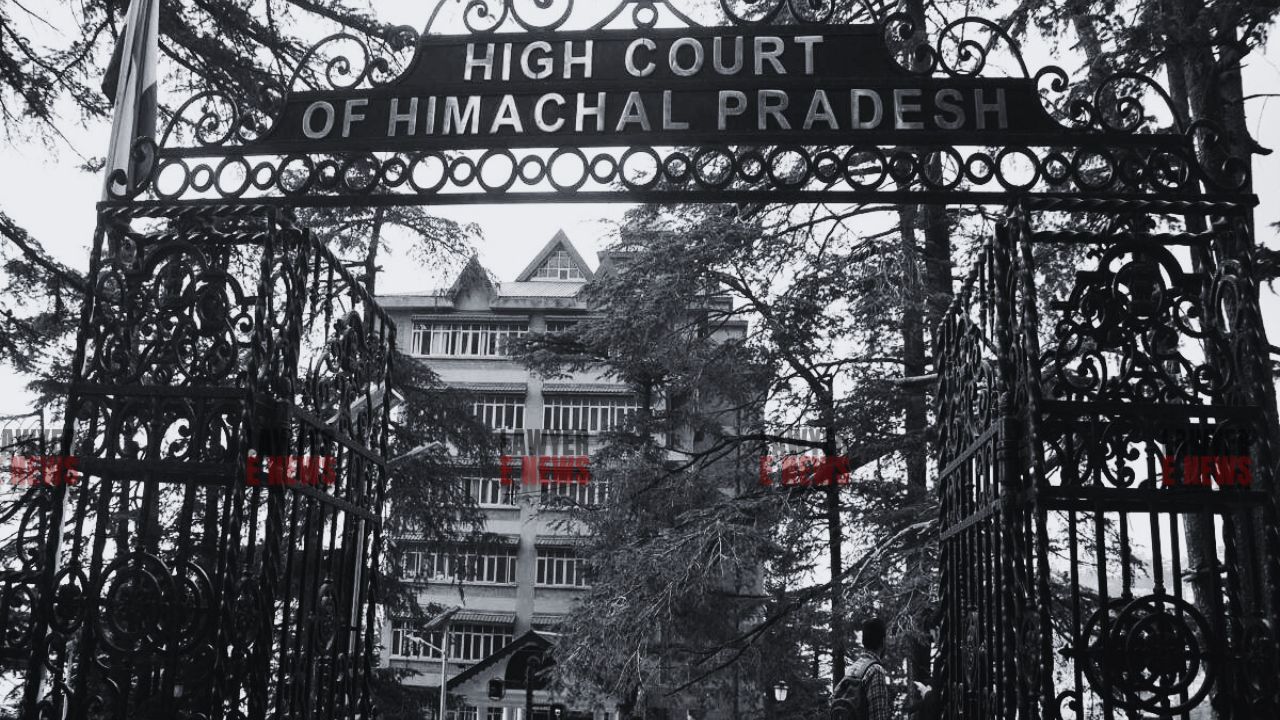-
by Admin
15 February 2026 2:16 AM



The Himachal Pradesh High Court, in a significant judgment delivered on July 26, 2024, has directed the State to consider the entire period of service of contractual Junior Engineers from their initial appointments for seniority and other related service benefits. The decision comes after a prolonged legal battle by the petitioners, Narender Naik and others, who sought the regularization of their services from their initial appointment dates.
Petitioners Narender Naik and others were appointed as Junior Engineers on a contractual basis in the H.P. Public Works Department (HPPWD) and the Department of Irrigation and Public Health in 1995 and 1997, respectively. Despite their continuous service, their requests for regularization were denied by the State on the grounds that their initial appointments did not follow the prescribed recruitment procedures. The petitioners contested this, leading to a series of litigations culminating in this High Court judgment.
The Court examined whether the initial contractual appointments were valid under the 1997 Recruitment Rules, which governed the recruitment and promotion of Junior Engineers at the time. The respondents argued that the appointments were not in accordance with these rules as they were not processed through the Himachal Pradesh Public Service Commission (HPPSC). However, the Court noted that the 1997 Rules did not explicitly mandate such a procedure and that the appointments followed a proper selection process involving advertisements and interviews.
The Court heavily relied on the Supreme Court’s judgment in the Direct Recruit Class II Engineering Officers’ Association case, which held that if an initial appointment is made without strictly following the rules but the appointee continues uninterrupted until regularization, the period of service should be counted for seniority. The petitioners’ continuous service without any break met these criteria, thereby entitling them to the benefits from their initial appointment dates.
The Court also considered the history of the litigation, noting that earlier judgments had directed the State to consider the petitioners’ cases in light of the Supreme Court directives. The respondents’ continuous denial despite these orders was deemed unjustified. The Court highlighted that the State had acquiesced by regularizing the services under the 2004 Rules, which specifically accommodated contractual employees.
The Court’s legal reasoning focused on the principles of natural justice and the need for consistency in administrative decisions. By aligning its judgment with Supreme Court precedents, the High Court reinforced the legal framework that protects the rights of employees appointed on a contractual basis but serving continuously till regularization. The Court dismissed the State’s argument that the petitioners’ services were a stopgap arrangement, instead recognizing their substantial contribution over the years.
Justice Satyen Vaidya stated, “The respondents’ continuous service of the petitioners without break and subsequent regularization under the 2004 Rules evidences the legality and validity of their initial appointments. Denying them seniority from their initial appointment dates violates established legal principles.”
The High Court’s ruling mandates the State to recognize the petitioners’ entire contractual service period for determining seniority and other benefits, effectively quashing previous orders that denied such recognition. This judgment not only provides relief to the petitioners but also sets a precedent for similar cases, reinforcing the judiciary’s role in upholding employees’ rights against arbitrary administrative decisions.
Date of Decision: July 26, 2024
Narender Naik and Ors. Vs. State of Himachal Pradesh and Ors.
